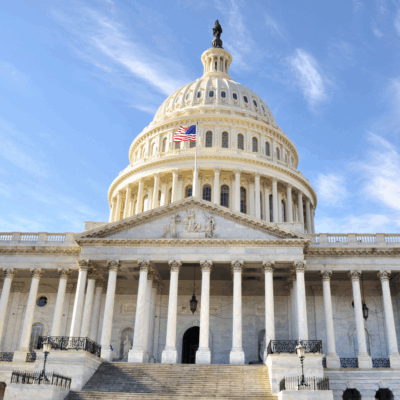Navigating Politics in the Workplace
As the United States approaches the 2024 Presidential election, businesses across the country are grappling with how to address political discussions in the workplace. Tiffany Slater, Ph.D, CEO of HR TailorMade, recently shared her expertise on this sensitive topic in an America Back to Work episode, offering valuable insights for companies looking to maintain a harmonious work environment amidst political turbulence.
Setting Clear Boundaries
One of the first steps in managing politics in the workplace is establishing clear guidelines. Dr. Slater advises, “Be very clear about what the limits are. When we say don’t talk about politics in the workplace, does that mean I can’t wear a hat that demonstrates what political figure I support or what party I support? Does it mean I can’t have a screen on my computer, a screen saver that recognizes or acknowledges who I support?”
These questions highlight the need for specificity in workplace policies. Vague rules can lead to confusion and inconsistent enforcement. Dr. Slater recommends that companies establish and publish clear workplace political expression guidelines.
She emphasizes the importance of effectively creating and communicating these policies to all employees. “If your organization chooses to go down that route, then go all the way because there is no half-stepping with this conversation,” she states.
She suggests holding team meetings to discuss these policies and explain their rationale. “We’re putting this in place because we want our workspace to be free of distractions. We want our workspace to be where everybody feels comfortable, safe, and heard,” she explains.
Modeling Respectful Behavior
While setting clear boundaries is crucial, it’s equally important for leaders to model the behavior they expect from their employees. Dr. Slater stresses, “As leaders of an organization, we have to show people what respectful conversation looks like.”
This means demonstrating how to handle disagreements professionally and respectfully. Dr. Slater suggests, “If I don’t agree with what you’re saying, I can respectfully decline to continue this conversation, or I can say, ‘You know what? We’re both entitled to our opinion, and I still respect you,’ and you walk away from it and move on to the next day.”
Addressing Offensive or Rude Comments
Despite best efforts to promote respectful discourse, there may be instances where employees make offensive or inappropriate political comments. Dr. Slater strongly advises against ignoring such incidents. “If we ignore it, we’re still doing something—we’re ignoring it, and it gives the impression that we agree with it or okay with the statement that has been made,” she explains.
Instead, she recommends addressing these issues promptly and privately with the individuals involved. She suggests framing these conversations in the context of the company’s values and culture, “Your comments were rude and disrespectful, and that is not how we behave. We value collaboration. We value diversity. Whatever your values are, you want to ensure that the employee always aligns with your values.”
Seeking to Understand Different Perspectives
While it’s important to address inappropriate behavior, Dr. Slater also emphasizes the value of seeking to understand different perspectives, even when it’s challenging. This approach can help de-escalate tensions and foster a more inclusive environment.
“If we start our conversations by seeking to understand their perspective, I think it helps to take their guard down and soften our stance just a bit so that we can connect with that person,” she notes. This doesn’t mean agreeing with views you find objectionable but rather making an effort to understand where others are coming from.
Dealing with External Political Pressures
As the 2024 Presidential election draws near, companies may find themselves dealing not just with internal political discussions, but also with external pressures. Dr. Slater recommends creating safe spaces for employees to discuss these issues. “If you truly care about the people in your space, it’s not something that just happens to [one group]; it happened to all of America,” she says.
The Effect of Political Climate on Business
Dr. Slater believes that recent political and legal decisions will continue to significantly shape the business world. “Because of all of these changes, so many people are starting their businesses because they don’t want to be a part of some of these atrocities that I believe are happening,” she observes.
This trend highlights the importance of company values and culture in attracting and retaining talent. Companies that can navigate political issues thoughtfully and respectfully may gain a competitive advantage in the labor market.
The Role of HR In Shaping Company Culture
Throughout the discussion, Dr. Slater emphasizes HR’s role in shaping company culture. “The work we do is all about the culture that we want to build, and HR plays a huge role in that,” she states.
Managing Workplace Politics
As we approach the 2024 Presidential election and beyond, the challenge of managing political discussions in the workplace will likely become increasingly important. By following Dr. Slater’s advice—setting clear boundaries, modeling respectful behavior, addressing issues promptly, seeking to understand different perspectives, and creating safe spaces for discussion—companies can foster a more inclusive and harmonious work environment, even amid intense political divisions.
Dr. Slater says, “At the end of the day, we all are better together. And to be together, we must respect each other and create space for people to be themselves.”







